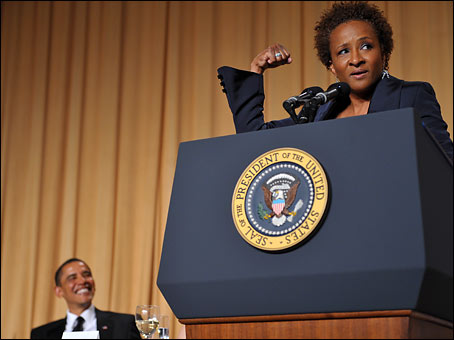The decentralization of media has given us the Kardashians, holy fuck, but it’s also opened up an infinite number of channels for new voices, many of them comic. In the Guardian, Anna Holmes points out that the Internet has provided women a platform for feminist-tinged wit, which is great because comedy stems from dissatisfaction and the must put-upon people are often the funniest. An excerpt:
“This outpouring, which can be found in print, pop culture and all over social media, has been fuelled by any number of things. Among them are the democratising nature of the internet, the inclusion of new and previously marginalised voices and the fact that many women are not only very tired of being treated like second-class citizens but are very funny about it.
This may come as a surprise to some, because feminism and discussions of gender politics have rarely, if ever, been celebrated for their embrace of the farcical or the witty. In fact, an accusation of humourlessness has remained one of the most pervasive accusations levelled against those involved in agitating against sexism and misogyny.
You might recall Christopher Hitchens’s infamous essay ‘Why women aren’t funny,’ published in Vanity Fair. The late polemicist ended up undermining his own argument for male superiority by explaining that ‘humour, if we are to be serious about it, arises from the ineluctable fact that we are all born into a losing struggle.’ And last year, in a disappointing interview with The Daily Show host Jon Stewart, the normally perceptive comedian Louis CK alleged that comedians and feminists are ‘natural enemies.'”


